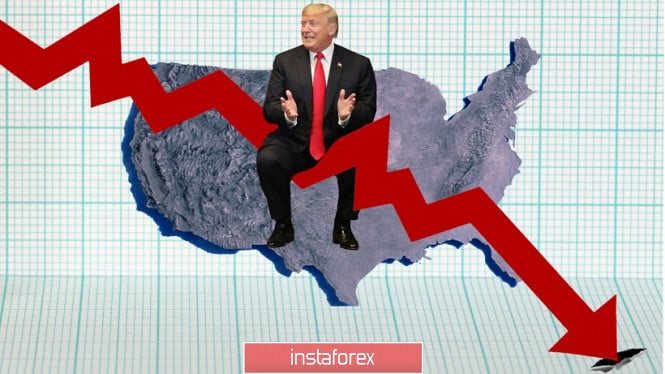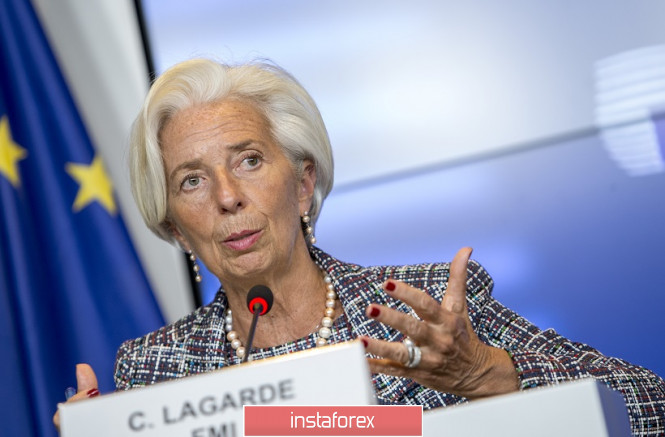EUR/USD is trading, in anticipation of the ECB's March meeting, where the results of which may significantly affect the dynamics of the euro. Meanwhile, the coronavirus epidemic continues to put pressure on the dollar, as the currency's index resumed its decline after another correction. The dollar reacts to the news regarding the impact of COVID-19 both in the US and around the world.
Today, Donald Trump imposed a 30-day ban on people from European countries entering the US. Explaining his decision, the head of the White House accused Europeans that the EU countries are not responding enough to the threat of the coronavirus pandemic. At the same time, the European Union itself said that the US authorities did not coordinate this ban with Brussels.

Because of the coronavirus, the CME Group closed the Chicago Mercantile Exchange's trading platforms, and the NBA officially suspended the 2019/20 season, because one of the basketball players, Utah center Rudy Gober, contracted the virus. The COVID-19 also entered the US Congress, as Senator Maria Cantwell, Democrat from the Washington State, was diagnosed with the virus. World-famous actor Tom Hanks, who is now in isolation in Australia, also got infected.
All in all, the number of coronavirus cases in the US increased to 1,322. The disease has already claimed 38 lives. As a result, 24 States of the country declared a state of emergency: Arizona, New Mexico, Louisiana, Arkansas, Washington, Michigan, Vermont, North Carolina, Massachusetts, Colorado, Ohio, Illinois, Rhode island, New Jersey, Oregon, New York, Pennsylvania, Utah, Kentucky, Indiana, Hawaii, Maryland, California, Florida. An emergency situation was also reported in the district of Columbia.
The chief infectious diseases specialist of the United States also added fuel to the fire as he predicted yesterday the deterioration of the situation with the coronavirus. He said that the COVID-19 vaccine may not be available in the coming months, and, in the worst case, may not even appear until a year and a half later. Meanwhile, the rate of the spread of the virus suggests that the infection will spread exponentially.
With this, it is not surprising that the CBOE volatility index (the so-called "fear index") jumped by 10% yesterday, while the main Wall Street stock indexes fell back into the "red zone". The stock market reacted to the "inaction" of the US authorities, as Trump promised Americans that the government will adopt a large-scale package of measures to stimulate the economy, but the White House remains silent on this topic. No one has announced any coherent and coordinated measures, including tax breaks.
Yesterday, Donald Trump called on the Congress to ease the tax burden as part of the fight against the impact of the coronavirus, but the Senators are not eager to take the action. This stalemate did not only negatively affected the stock market, but also threatened the positions of the dollar.
At the same time, the euro is also under some pressure, as yesterday, the Bank of England also lowered its interest rate by 50 bps. Prior to that, the Fed, RBA and Bank of Canada also took the same actions, so traders have every reason to believe that the ECB will also resort to such measures. According to experts, three main scenarios are possible: the central bank will either reduce the deposit rate to -0.6% (the most expected option), or increase the volume of QE up to 40 billion euros. The ECB may also take a wait-and-see position, while announcing one of the mentioned options. Some experts also believe that the ECB may also change its terms of operations for providing long-term liquidity to banks.

Unlike the Federal Reserve, who has more room for maneuver against the framework of traditional monetary policy, the European regulator has already used all its capabilities long before the outbreak of the virus, so easing the monetary policy right now might not be a good idea.
Most likely, Lagarde will still decide to reduce the rate, but there will be no consensus in the market regarding the possible actions of the ECB. The rate cut will not turn the EUR/USD pair downwards, even if the central bank's available levers of influence has almost dried up, and the US regulator can continue to reduce the interest rate up to zero. You should not trust the initial reaction of the market regarding the ECB's decision, as the dollar is still vulnerable, even compared to the euro.
The material has been provided by InstaForex Company - www.instaforex.com